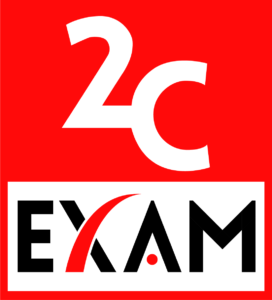Isn’t every company that sells insurance policies called an insurance company?
Insurance companies refer to companies that will launch their own new products (insurance plans). These companies usually have a larger scale. They will arrange everything from product development, front-line sales, underwriting, claims, complaints, and actuarial calculations. To ensure compliance with the requirements of insurance industry regulations and ethical standards. These companies will arrange their own staff to sell insurance policies, and will also cooperate with some insurance brokers to outsource the sales work to them. Common insurance companies include: Manulife, Prudential, China Life, AIA, etc.
An insurance company can also be called an “Insurer”, because the insurance company is the one who provides protection behind all the insurance policies on the market. If you need to make a claim, the one who pays is the insurance company. The person who purchases the policy is the “Policy Holder”. In the insurance industry, the word “person” does not necessarily mean a natural person with flesh and blood and human organs. “Person” can represent both a company and a natural person. Therefore, “insurer” and “Policy Holder” are not necessarily natural persons.
What is an insurance agent?
As mentioned earlier, insurance companies will also sell their own insurance products. Insurance agents will be categorized into independent agents or hired agents. In many cases, insurance companies will “appoint” some “Insurance Agents” to sell insurance policies. Speaking of entrustment, in fact, these insurance agents are not the “employees” of the insurance company, and the relationship between the two is a cooperative relationship, and the agents are self-employed to complete the sales tasks for the insurance company, therefore the the saying “employed” insurance agents that is commonly said in the market is not necessarily accurate. Insurance agents can also refer to an agency company or an agent that is a natural person.
Insurance agents represent the insurance company to open up the source of customers, provide the company with services such as selling insurance products and answering claims issues for customers. It mainly represents the interests of insurance companies, not the interests of policyholders. Insurance agents generally only sign cooperation agreements with one or several insurance companies. If the agent only cooperates with one insurance company, the two contracts will specify that the agent can only sell the products of that particular insurance company. Insurance agents mainly sell long-term insurance such as life insurance and critical illness insurance, so they can get more support from insurance companies.
Insurance broker? Is it a role like a star manager?
Insurance brokers and star managers have completely different meanings and roles. As mentioned above, the term Insurance Brokers can refer to companies or individuals. Insurance brokers are companies that sell other people’s insurance products. Usually, a brokerage firm will cooperate with more than one insurance company. The broker can provide products from multiple insurance companies for customers to choose from. After the insurance policy is sold, the insurance company will share the profits with the insurance broker company. Common insurance brokerage companies include: Convoy, Everbright Sun Hung Kai, AMTD, etc.
The insurance broker selects suitable insurance products on behalf of the client. The word “ insurance broker” can refer to an individual or a company. It is completely independent in identity and does not represent any insurance company. General insurance uses brokers to contact customers, such as car insurance, marine insurance, and fire insurance, which mainly represent the interests of policyholders rather than the interests of insurance companies. Insurance brokers have cooperative relationships with multiple insurance companies. For a broker, the more insurance company products they can sell the better. They do not have exclusive sales agreements with insurance companies. Therefore, insurance brokers have an advantage in product diversity and can objectively provide customers with products from multiple companies for purchase.
What does insurance intermediaries mean?
Insurance intermediaries generally refer to insurance agents (individuals) and insurance brokers (individuals), because these two types of persons only promote insurance company products to customers, and do not directly contract with customers or provide insurance compensation.
Where can you buy insurance?
As long as you are able to find an insurance intermediary who is willing to thoroughly explain the products they are selling (agents, brokers, or insurance salespersons in banks are also included in this instance), you will be able to buy an insurance plan that suits your needs with a peace of mind. You can ask friends if they have any recommended insurance intermediaries, if not, you can try to take initiative and do some searching on the web.


How can we help?
2CExam provides HKSI LE, IIQE, EAQE and SQE related exam preparation materials. We sell mock question banks for IIQE Papers 1, 2, 3, 5 and MPFE in Chinese and English; and bibles for IIQE Papers 1, 2, 3, MPFE in Chinese. We also offer 1 on 1 tutorial services. Besides, we have also made free tutorial videos for IIQE Papers 1, 2, 3 and MPFE and posted on public channels such as Youtube/ Bilibili/ Tencent/ Iqiyi. 2CExam has been an exam training expert for years. Should you need any help please visit www.2cexam.com or contact us through:
Phone +852 2110 9644 Email: [email protected] Wechat: hk2cexam WhatsApp: +852 9347 2064
Please support us by leaving comments and likes if you think this article helps you!
You can scan or click on the QR codes to visit our social media.
Latest Article
Categories
過往文章
Contact US
-
Phone:
+852 2110 9644
-
Email:
-
WhatsApp
+852 9347 2064
-
WeChat
hk2cexam
Interesting Articles
Is the IIQE paper based exam or computer based exam easier? Which exam is better to partake in?
Many people are curious about the differences between the IIQE’s computer-based exam and the paper-based exam. As per the two exams’ content, they are pretty much identical. The two exams use the same Study Guide, the exam questions are drawn in the same question bank. Some people say that they have taken a…
Is the HKSI paper-based exam or the computer-based exam easier? Which is better to partake in?
Many people are curious about the differences between the HKSI LE’s computer-based exam and the paper-based exam. As per the two exams’ content, they are pretty much identical. The two exams use the same Study Guide, the exam questions are drawn in the same question bank. Some people say that they have taken…
What are the differences between a computer-based and paper-based exam for the Estate Agents / Salespersons Qualifying Examinations?
There are differences between the computer-based exam and the paper-based exam? Some people say that the computer-based exam / paper-based exam will be easier? Many people are curious about the differences between the EAQE/SQE’s computer- based exam and the paper- based exam. As per the two exams’ content, they are pretty much…
What is the difference between the computer-based exam and the paper-based exam of the Insurance Intermediaries Qualifying Examination
Many people are curious about the difference between the IIQE’s computer-based exam and the paper-based exam. First of all, IIQE does not hold many paper-based examinations. In many cases, it will only hold paper-based examinations for Paper 1. If you have special needs, such as not being proficient with computers, or having a vision…
What are the differences between the computer-based exam and the paper-based exam of the Licensing Examination for Securities and Futures Intermediaries (LE)?
There are differences between the computer-based exam and the paper-based exam? Some people say that the computer-based exam / paper-based exam will be easier? Many people are curious about the differences between the HKSI LE’s computer-based exam and the paper-based exam. First of all, HKSI does not hold many paper-based examinations. In many…
Which Licensing Examination for Securities and Futures Intermediaries exam paper should I partake in?
If you want to work in the front line of the securities industry, you have a good chance of needing to take The Licensing Examination for Securities and Futures Intermediaries. As for what test papers you need to take, first of all, you need to know that the number of the exam paper has…
If I have an overseas professional qualification, can I obtain a SFC securities license simply by recognising my prior qualification
Some students have worked in the securities finance industry outside of Hong Kong, and now they also need to obtain a securities business license in Hong Kong. Can work experience in the securities industry abroad help you waive the exam and allows a candidate to directly apply for the securities license from the Securities…
In order to obtain exemption from the HKSI LE exam or SFC’s academic requirement, how is relevant industry experience considered?
After reading the “Competency Guidelines” issued by the Securities Regulatory Commission, some students may have a big question mark on “Relevant Industry Experience”, “have X years of experience in the past X years”, and then ask us what kind of experience are counted as industry experience so they can be exempted from the Licensing Examination…
Which insurance intermediary qualifying examination paper should I take?
If you want to work in the front line of the insurance industry, you have a good chance of needing to take the Insurance Intermediaries Qualifying Examination (IIQE). As for what exam papers you need to take, first you can check whether you meet certain conditions to be exempted from specific exam paper combinations…
The difference between IA Responsible Officer(RO) and technical representative (TR)
Regulatory Organisation Before explaining the difference between Responsible Officer and Technical Representative, you must first know that there is only one regulatory agency that regulates companies engaging in insurance business: the Insurance Authority (IA). All the powers concerning licensing matters, supervision tasks, sanctions and investigations of intermediaries of insurance intermediaries, insurance companies and insurance…







